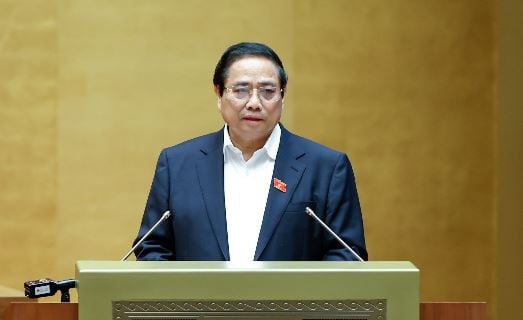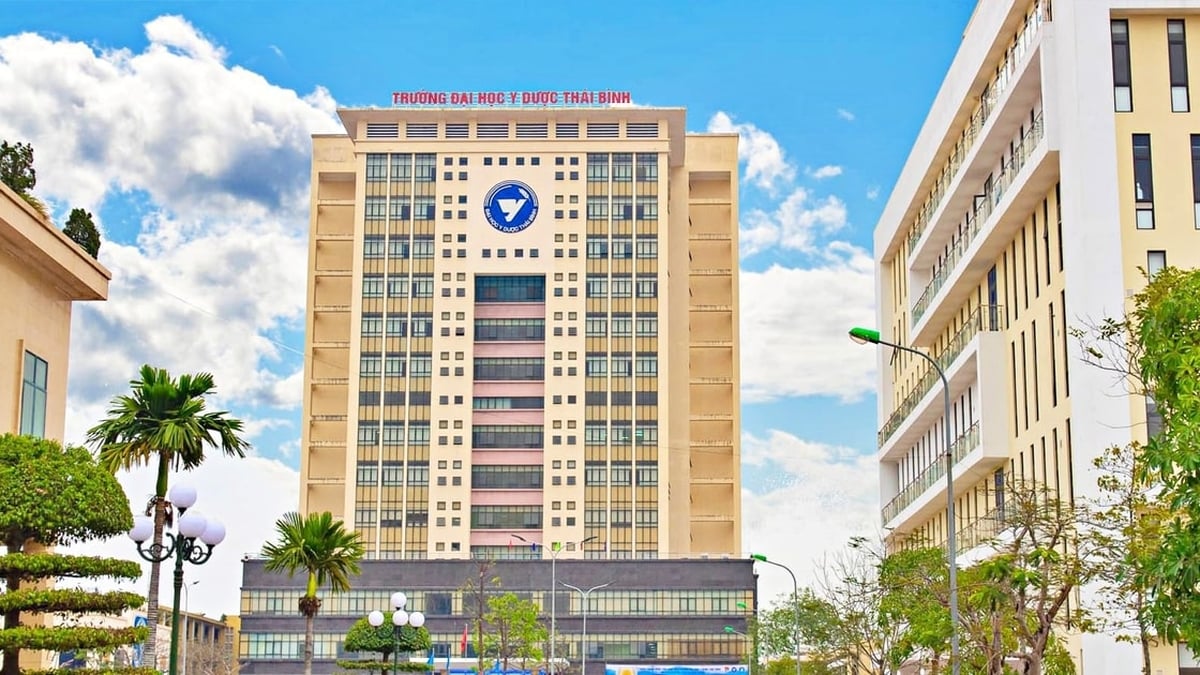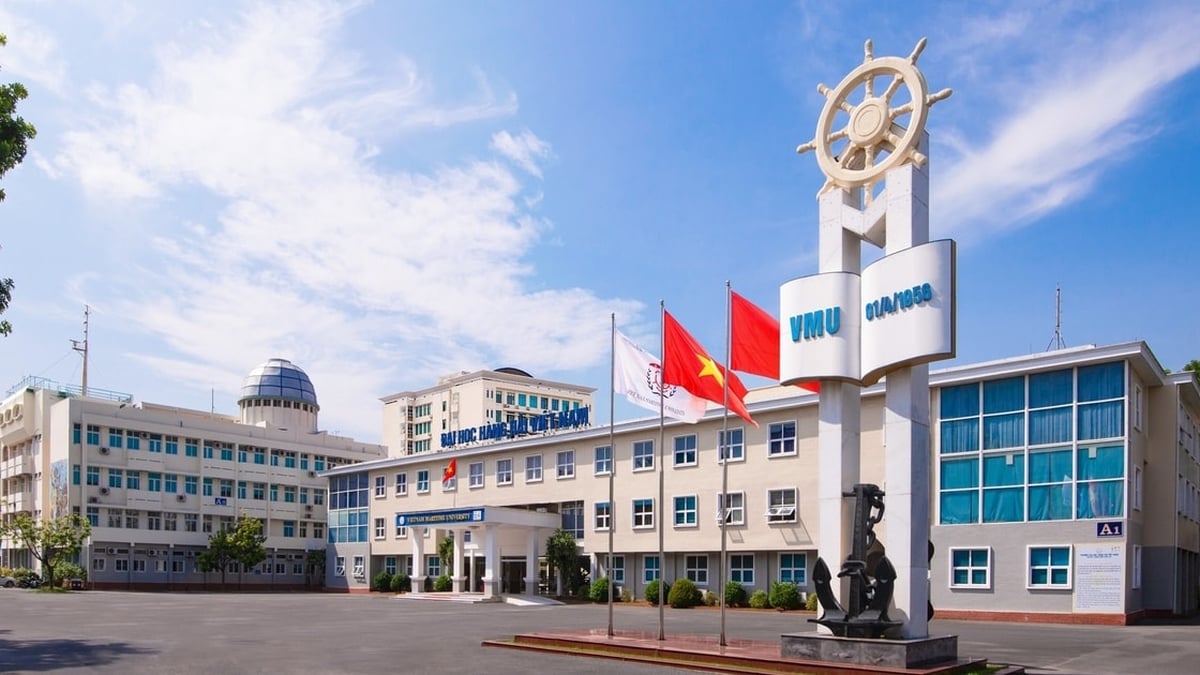The conference was organized by the Politburo and the Secretariat, assigned to the Central Propaganda Department and the Central Mass Mobilization Department, under the direct direction of General Secretary To Lam.
Speaking at the conference, General Secretary To Lam emphasized: "2025 is a pivotal year. If we do not make a breakthrough now, the country will lose a golden opportunity. In implementing the three resolutions, we need to take actual effectiveness as the evaluation criterion."
Resolution No. 68-NQ/TW considers the private economy as the most important driving force of the national economy; a pioneering force in the development of science and technology, innovation and digital transformation, contributing to the successful implementation of the goals of Resolution No. 57-NQ/TW of the Politburo.
The Resolution sets out targets for 2030 and 2045, with eight groups of tasks and solutions that are innovative, breakthrough, and strongly reformed. These solutions closely follow three strategic breakthroughs (institutions, human resources, infrastructure) and are included in the four major resolutions of the Politburo, including Resolution 68-NQ/TW.
The Prime Minister said that the focus of the task groups is to address key issues for the current development of the private economy, including: innovation in thinking; institutional reform; improving access to resources; promoting science and technology, innovation and digital transformation; market development; improving corporate governance capacity; developing high-quality human resources; and strengthening the Party's leadership and supervision.
Prime Minister Pham Minh Chinh spoke at the Conference: "We must launch a movement for the entire population to compete to get rich legitimately for the cause of building and defending the Fatherland."
Also at the Conference, businessman Vu Van Tien, Chairman of Geleximco Group, said: “Resolution 68/NQ-BCT has addressed all the problems and concerns we have. Resolution 68, I feel like a drought meets a shower of rain."
According to Mr. Tien, from the role and perspective of a private enterprise, the pressures, difficulties, and constraints from mechanisms and policies for private enterprises have made him and many other businessmen very frustrated for many years.
“We want to contribute but due to many mechanisms we cannot do so. Many times we are tied up,” Mr. Tien said.
“Those things have now been “liberated” by the Politburo through Resolution 68 on the private economy and many other Resolutions of the National Assembly and the Government issued yesterday for implementation and guidance,” Mr. Tien said.
According to Mr. Tien, the Resolution with its breakthrough viewpoints and comprehensive vision, correctly assesses the position and role of the private economy in the private economy. Completely eliminates prejudices about the private economy. The private economy, as Mr. Tien affirmed, is a comprehensive revolution in liberating the productive forces.
The businessman said that the contents of Resolution 68 are very good, the most worrying thing is how it will be implemented in the future. Mr. Tien suggested that the Politburo, the General Secretary, and the Government should assign an independent agency to monitor, evaluate the implementation, and receive feedback from businesses for better implementation.
Responding to the businessmen’s petition, the Prime Minister affirmed: The concerns about the implementation of enterprises are clear, the Government has directed a review and summary. What is good, continue to promote, what is not good must be overcome.
The Prime Minister said that the Government has just issued a Government Resolution on the action program to implement Resolution 68, clearly assigning tasks to ministries and branches.
According to the Prime Minister: "Previously, we had to bid and auction for work, but in the future, we will assign work. We have been assigning work. We hope that businesses assigned work will have the spirit of doing what they promised, and doing what they did must have products, be able to measure and quantify. The same goes for state agencies."
The Prime Minister affirmed: State and local management agencies accept the opinions of businesses. “In the process of doing things, do not be perfectionist, do not be hasty, but learn from experience as you go,” said the Government leader.
Reporting on the implementation of Resolution 68 of the Politburo on the private economy, the Prime Minister affirmed that on May 4, when Resolution 68 of the Politburo was issued, after more than 10 days, the National Assembly issued Resolution No. 198/2025/QH15 on a number of special mechanisms and policies for the development of the private economy; the Government issued Resolution 138/NQ-CP on the Action Plan for the development of the private economy in Resolution 68-NQ/TW in 2025.
The Prime Minister affirmed that this is the first and foremost requirement and is of special importance, creating the premise for the development of the private economy. In particular, it is necessary to unify the awareness and actions of Party committees, authorities, the entire political system, the business community and the people about the position and role of the private economy.
“Institutions should not continue to be the “bottleneck of bottlenecks”, but rather the driving force to strongly promote the development of the private economy. The spirit is to innovate the thinking of building and enforcing laws; eliminate administrative barriers, the “request-grant” mechanism, the “can’t manage, ban” mindset; and thoroughly overcome the contradictions, overlaps, and inconsistencies between ministries, branches, and localities,” said the Prime Minister.
The Prime Minister emphasized that the action programs to implement Resolution 68 need to clearly demonstrate the Politburo's policy: Ensuring the principle when handling violations and civil and economic cases, prioritizing the application of civil, economic and administrative measures first, allowing for proactive remediation of violations and damages.
In cases where the practical application of the law may lead to criminal proceedings or not, criminal proceedings must not be applied. In cases where criminal proceedings are required, measures to remedy economic consequences must be prioritized first and are an important basis for considering subsequent measures.
Do not retroactively apply legal provisions to deal with businesses unfavorably. Ensure the principle of presumption of innocence during the investigation and trial of cases.
Clearly distinguish between legally formed assets and assets obtained from illegal acts and other assets related to the case; minimize the impact on production and business activities.
Regarding land access, the Government leader affirmed that by 2025 at the latest, the construction of the National Land Database will be completed; electronic transactions in the land sector will be implemented; the time for handling land lease procedures and granting land use right certificates will be reduced; and active support will be provided in site clearance.
Allow localities to use local budgets to support investors in infrastructure business of industrial parks, industrial clusters, and technology incubators; reserve at least 20 hectares/industrial park, industrial cluster or 5% of total land fund invested in infrastructure for lease to high-tech enterprises, small and medium-sized enterprises (SMEs), and innovative startups; reduce land rent by at least 30% in the first 5 years of operation and have support policies for enterprises renting houses and land that are public assets...
Regarding capital, priority is given to a portion of commercial credit sources for private enterprises, especially small and medium enterprises, supporting industry enterprises, and innovative startups.
Complete the model of credit guarantee funds for SMEs at both central and local levels. Connect and share information between banking systems, tax authorities and relevant agencies, ensuring connectivity and sharing of data on the business's operations and finances.
The Prime Minister requested to urgently upgrade and restructure the stock market, develop the insurance market, and complete regulations on corporate bonds to improve quality and expand stable, low-cost capital mobilization channels for the private economy...
The Prime Minister assigned the Ministry of Finance to develop and implement a training program for executives nationwide; striving to train 10,000 executives with advanced and modern management skills by 2030 to meet development requirements in the new situation.
Source: DTCK
Source: https://baotayninh.vn/thu-tuong-khan-truong-nang-hang-ttck-mo-rong-kenh-huy-dong-von-cho-kinh-te-tu-a190240.html



































































































Comment (0)